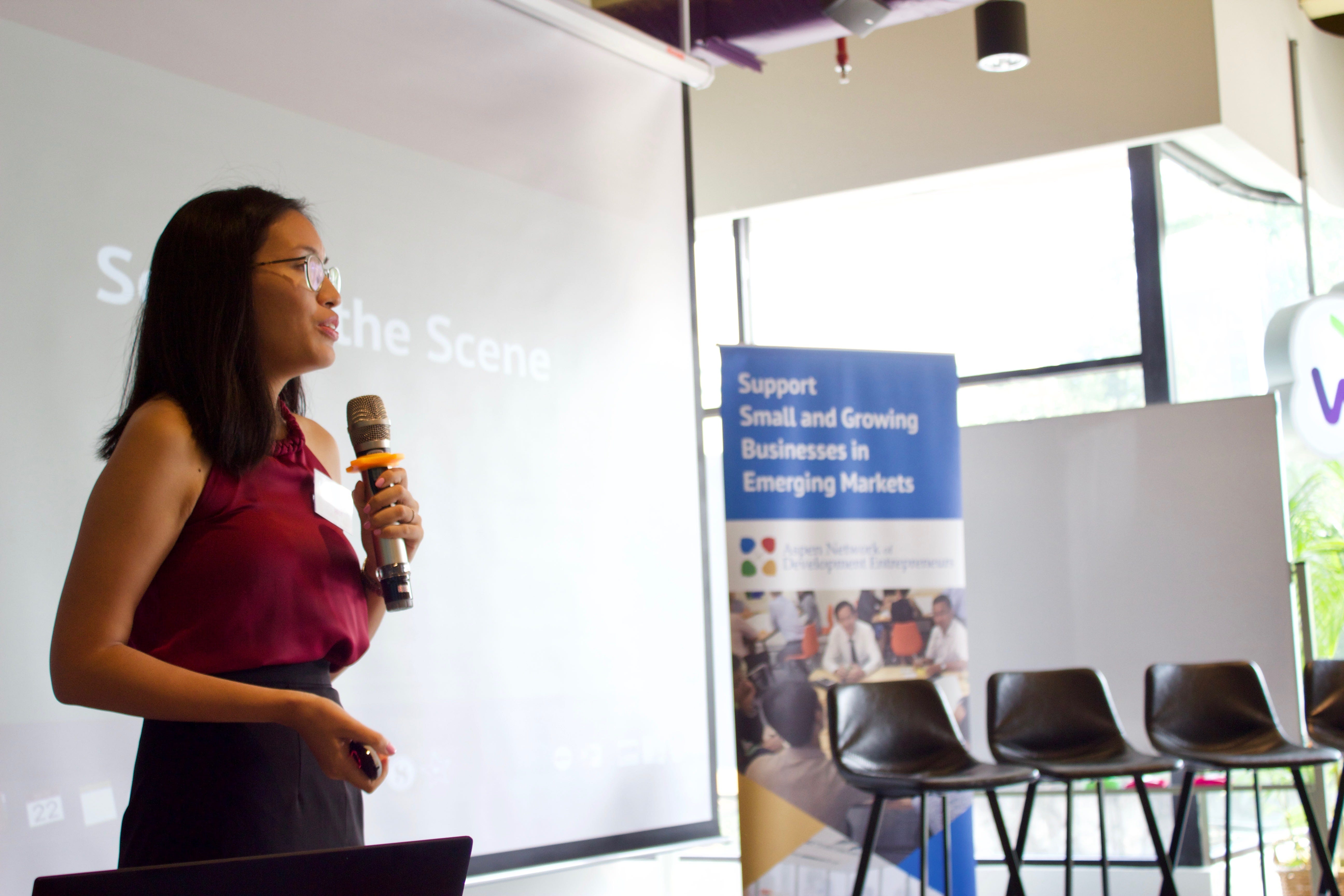Commercial agriculture is responsible for at least 30% of deforestation in Asia, but the world needs agriculture to feed a growing population. Most farmers in East and Southeast Asia work on a small scale and stay poor. But farming as a business has enormous potential to generate income for people living in rural areas if it’s done responsibly, sustainably, and at scale.
On Thursday, 22 November 2018, ANDE’s East and Southeast Asia chapter brought 42 people from Thailand, Myanmar, Vietnam, Singapore, and Indonesia to discuss sustainability and to work together to produce a fresh vision for sustainable agriculture by 2020.

The event featured an introduction by Natcha Tulyasuwan, Deputy Chief of Party for USAID Green Invest Asia, who framed the conversation around sustainability. She noted that sustainability standards have been proven to improve yields and cost-effectiveness of agriculture (ISEAL Alliance (2017). Compliance with sustainability standards has also been growing across numerous markets, including cotton, coffee, palm oil, tea, cacao, and more. At the same time, these standards bring their challenges. For example, how do we know which standards to use? How can we make sure we don’t exclude smallholder farmers from markets as we seek to ensure compliance? And do these standards have the ability to address key systemic issues, like farmer poverty?

Discussions centered around how sustainability certification is just one tool, but it’s not a silver bullet. Organic certification, in particular, may be attractive for impact first investors because of its alignment with these investors’ mission, said Mark McDonagh, Asia-Pacific Investment Manager from Kiva.
However, Rachel Zedeck, Director of Climate Smart Agriculture and Impact Investment Strategies from Control Union Thailand, said that certification doesn’t necessarily mean high quality. Certification is a good step, but there’s still a lot to be done to improve the quality of many of these agricultural products. Wouter De Smet, Green Coffee Farmer Connect Manager AOA from Nestlé, added that we need more than just training in order to incentivize farmers to adopt better practices to improve quality. Changing methods and practices that farmers have followed for years — if not generations — takes time and trust.
In addition, but perhaps most important, Clint Coo reminded everyone in the room that farming must be profitable. Where incentives, best practices, and profits align is where we can gain the most ground as we seek to make agriculture sustainable in every sense of the word. If farms are not making money, they won’t be financially sustainable, and it won’t attract people to stay in that industry.
To round out the presentations before moving into the discussion, Bryan Hugill of Raitong Organic Farms shared his perspective as a farmer. He emphasized that organic certification does not equal quality, but that when organic certification is done right, it can create more productive, profitable farms and help farmers improve their perception of themselves.

The role of large multi-national corporations was also recognized. Learning Lab participants pointed out that if these big corporations begin to lead the way in sustainable agribusiness, that would reap immense rewards throughout the value chain, for consumers, and for the planet.
Participants left with a sense of greater connection to other actors working in this space. Agribusiness and sustainable agriculture is just one area in which ANDE seeks to build a connected ecosystem. Agribusinesses represent one kind of small and growing business — growth-oriented firms that may start small but have the potential to grow to employ at least five people — but it is an important type of business in East and Southeast Asia. When we talk about sustainability, especially as it relates to larger development goals, we also have to ensure financial sustainability. ANDE members look at these challenges through a unique lens — one that seeks to make these industries improve the lives of low-income people around the world and that seeks to make the businesses they run financially stable and sustainable.
